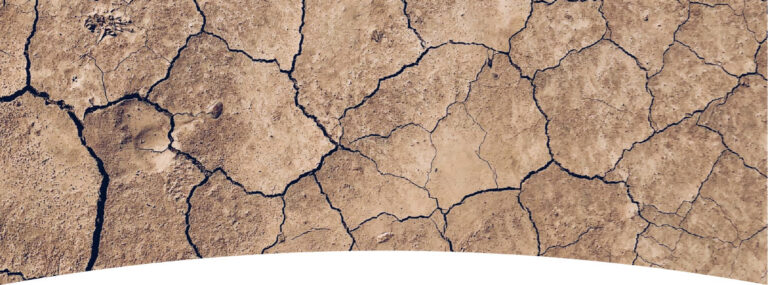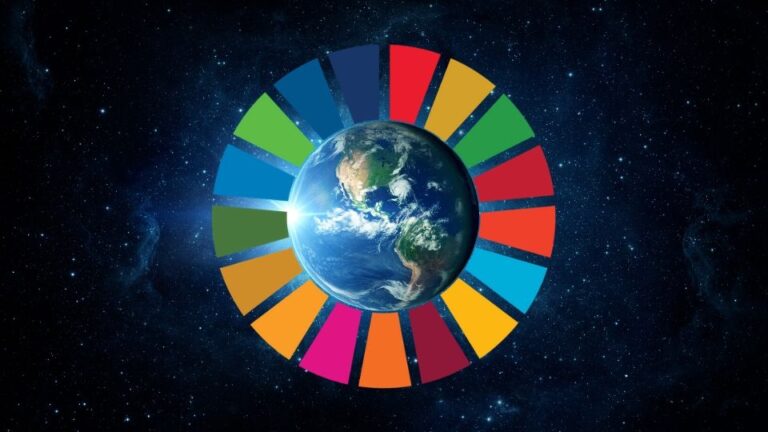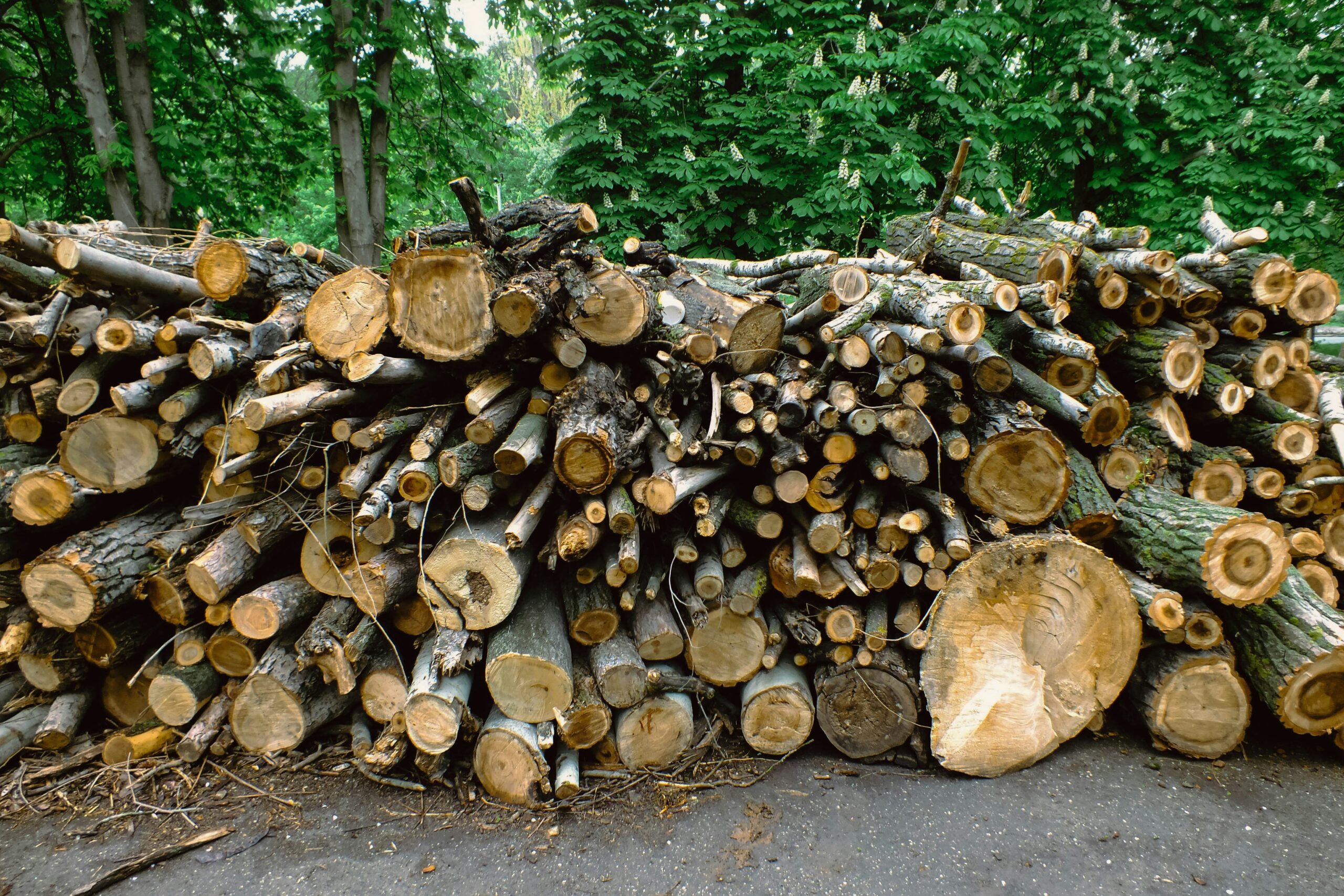
Global Resources Dwindling as Demand Rises
In the last 50 years resource use has tripled, just as the world’s population has grown from 3.6 billion people in 1970 to over 8 billion today. Climate change, accelerating animal extinctions, increasing water scarcity and drought, the result of the unsustainable demand our growing numbers and overconsumption place upon the earth’s resources, under pressure like never before.
Planet under pressure
The UN recently released its Global Resources Outlook 2024, and its message is clear – we’re consuming more resources than the Earth can sustainably provide, with demand set to rise further.
According to the Global Footprint Network, humanity is using up natural resources, such as food, water, land, 1.7 times faster than the planet can regenerate – the equivalent of using the resources of 1.7 earths.
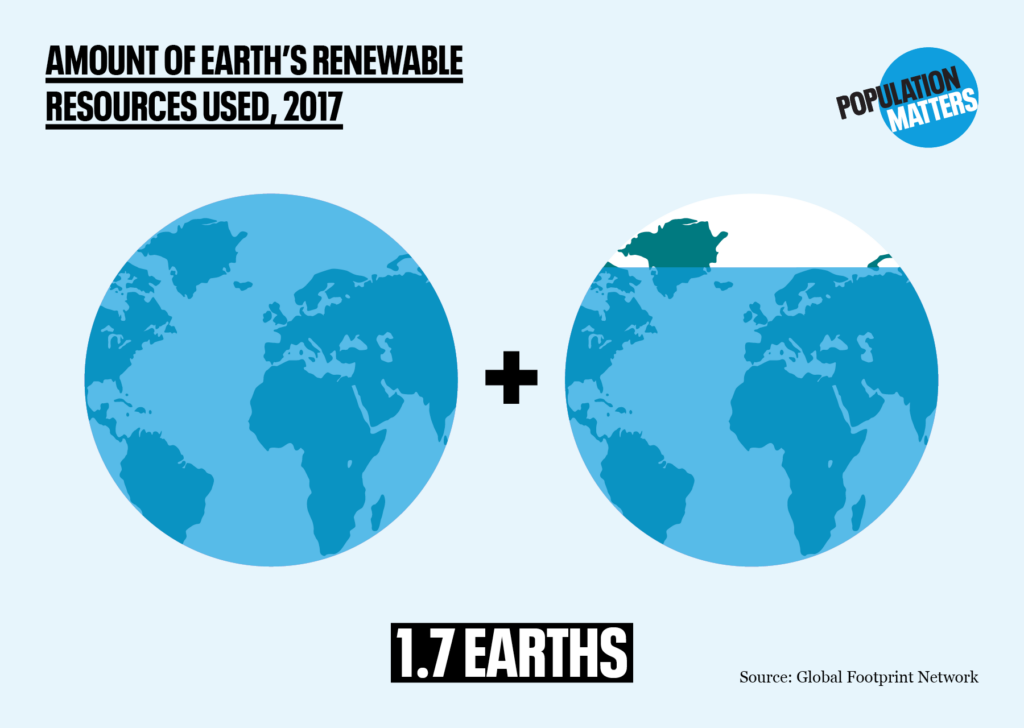
Global resources outlook
Population growth combined with our rising consumption means that material use continues to grow by an average of more than 2.3% per year. Material use has increased more than three times over the last 50 years – demand far outstripping the earth’s supply. The report is clear in its assessment that are unsustainable demand is the main driver of the triple planetary crisis: climate change, biodiversity loss, pollution and waste.
Over the past twenty years, affluence explains 40 percent of the global increase of material extraction, while population contributed to 27 per cent. Technology is found to only mitigate global material extraction by five per cent.”
Global Resources Outlook, 2024
Despite optimistic rhetoric from Silicon Valley, green technology will not be the miracle solution to reduce the strain of our demand. Rather, it’s predicted that a transition to green technologies is likely to place an even greater demand on virgin materials such as lithium, gold, and copper, to be used in electronic components.

The Population Factor
The report states that population growth is the main driver of increased resource use in Africa and West Asia.
It’s simple, more people will need more food, more housing, more roads, more public transport – all of which requires more resources.
Yet despite the Global Resources Report robust announcement that we must urgently reduce our consumption of resources now – having already breached both nature loss and CO2 emissions commitments multiple times – it fails to acknowledge addressing population as a solution to reduce our long-term consumption.
Especially, when in continents such as Africa, where a lot of that rapid population growth is due to underfunding of reproductive health services and girl’s education.
Continued population growth is at the core of the resources crisis, and it’s disappointing that such an authoritative report would neglect addressing population through positive, ethical means as a solution to help reduce our demand for resources.

Breaking Point
A projected 60 per cent growth in resource use by 2060 could derail efforts to achieve not only global climate, biodiversity, and pollution targets but also economic prosperity and human well-being.”
Global Resources Outlook, 2024
According to UN projections, the world’s population is estimated to hit 9.7 billion by 2050 – this continued population growth will make reducing resource demand impossible.
To prevent this projected 60 percent growth in resource use we must act now to curb population growth – fewer people in the future will use fewer resources, allowing us to reign in our unsustainable demand on the planet. In addition, we must reduce the current population’s overconsumption of resources.
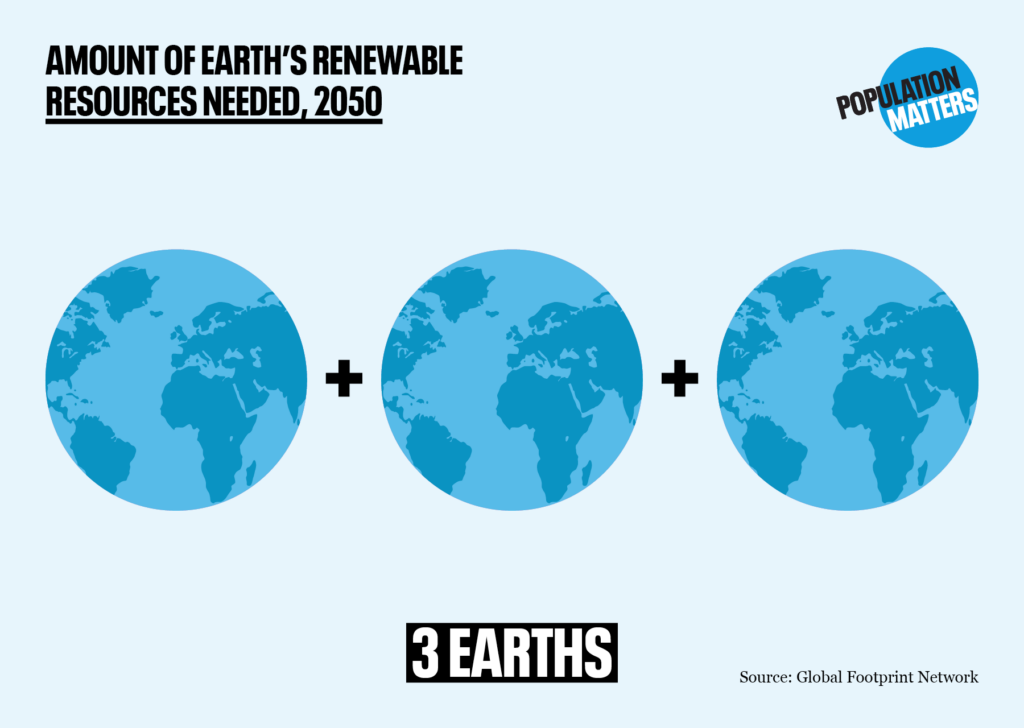
Growing Demand
The report outlines that rising resource demand is also due to a rise in global living standards. This should be celebrated as it means that millions of people have been lifted out of poverty.
However, the expanding global middle class is also adopting the high-consumption patterns widespread in the Global North, such as a transition to more heavily meat and dairy-based diet.
The environmental impact of agriculture cannot be underestimated, with almost 75% of land-related biodiversity impacts coming from agriculture, driving wildlife extinctions due to habitat loss.
Animal-based farming causes more biodiversity loss than any other form of agriculture. This is due to the large amount of land that is required to be cleared to provide grazing space to cattle, with the Amazon rainforest facing severe deforestation due to cattle ranches.
The report outlines that a transition to a more plant-based diet as well as reducing food waste, can decrease the land needed for food production by five percent compared to 2020 levels. This reduction of pressure on land, would ensure more natural ecosystems can be left for conservation and to act as climate change barriers.

Overconsumption
It’s vital that everyone is given the adequate resources they need, however our current global economic and social systems steer us toward high-consumption lifestyles – consuming far more resources than we need.
Material resource extraction could increase by almost 60% from 2020 levels by 2060, from 100 to 160 billion tonnes – far exceeding what is required to meet essential human needs for everyone.”
Global Resources Outlook, 2024
A rise in global living standards has meant an increasing rate of urbanisation. Increased population density in urban areas places a higher demand for resources such as water, energy, food, and transport. City-dwellers also tend to use more electronic devices resulting in higher energy usage, eat more processed food, as well as produce more waste.
To satisfy global demand each person now uses on average 13.2 tonnes of materials per year, this up from an average of 8.4 tonnes per person fifty years ago.
The global economic systems all work on a profit-maximisation order, encouraging us to buy more and more, ignoring the fact that resources are already strain and driving environmental degradation.

Impacts of a Global Economy
Whilst the UK government may announce that we have successfully reduced our emissions, that only applies to territorial emissions (carbon emissions produced in the UK), and disguises the fact that consumption-based emissions are on the rise.
Through global trade, high-income countries, such as the UK, offshore their industry and displace the corresponding environmental impacts to other countries.
High-income countries, use six times more materials per capita and are responsible for ten times more climate impacts per capita than low-income countries.”
Global Resources Outlook, 2024
The iCon report further outlines how marketing, business practices, and a lack of environmental awareness amongst the public is encouraging us to buy more even as resources dwindle, and environmental impacts worsen.
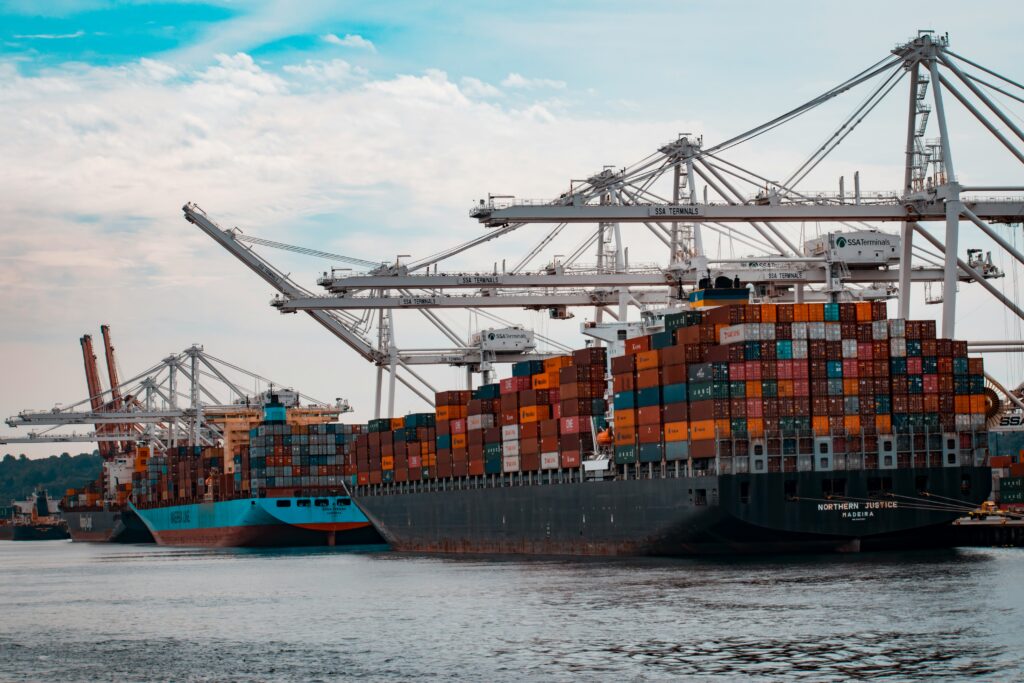
We Must Reduce Demand
The Global Resources Outlook 2024 is a stark warning to world leaders, that humanity’s demand is breaching planetary boundaries.
It also provides a sobering reflection to many of us who live in the UK or any other high-income countries, that not only is it imperative to curb and end population growth to reduce resource demand, but we must also reduce our own overconsumption.
By adopting a more plant-based diet, or simply buying fewer material goods, one can reduce their material consumption whilst retaining the same quality of life.
When it comes to the resource crisis, less for us, means more for the planet and a healthier environment for all.

